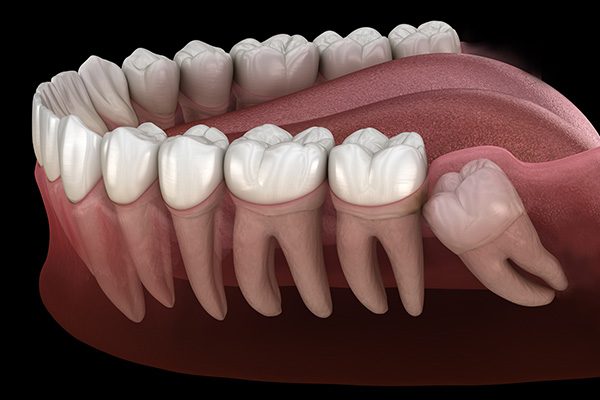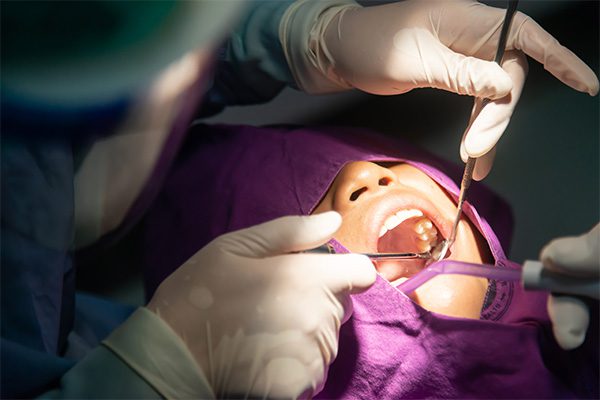If your wisdom teeth are infected, impacted, or just giving you trouble, they aren’t likely to get any better on their own. Luckily, wisdom tooth extraction procedures are a lot less scary than they sound and can be performed easily and with minimal discomfort by our team of experienced dentists. If you require wisdom tooth removal, there’s no need to panic; book online today with us, and we’ll take care of the rest!
What are Wisdom Teeth?
Wisdom teeth are our third molars, the back-most teeth in our mouths. These teeth are the last to come through and usually make their presence known in our late teenage years.
Unfortunately, most of us don’t have enough space in our mouths for our wisdom teeth to grow properly, and they come through incorrectly or end up impacted. Both impacted and non-impacted wisdom teeth can lead to issues down the line, which is why wisdom teeth removal procedures are a lot more common than you may have thought.


Wisdom Tooth Extraction Process
Wisdom tooth extraction procedures can vary in complexity depending on how your teeth have grown. Your dentist will investigate and discuss this with you beforehand.
We will use local anaesthesia to ensure minimal pain or discomfort during the operation. In some cases, you may require an IV sedative, which a specialist anaesthetist will administer. General anaesthesia is only given for particularly complicated procedures and is performed at a hospital or specialist office.
What You Need to Know About Wisdom Tooth Removals
What to Expect After Your Wisdom Tooth Removal
While you will feel minimal discomfort during your wisdom tooth removal, slight discomfort and swelling may begin to set in once the sedative wears off. You can easily manage post-procedure pain with pain medication your doctor will prescribe. Swelling generally takes around a week to subside entirely.
How Much Time off Will You Need After Wisdom Tooth Removal?
Depending on the number of wisdom teeth extracted and the complexity of the procedure, you may not need to take any time off at all. But in more severe cases, you might need up to a week to recover. You can discuss this with your dentist before your procedure.
